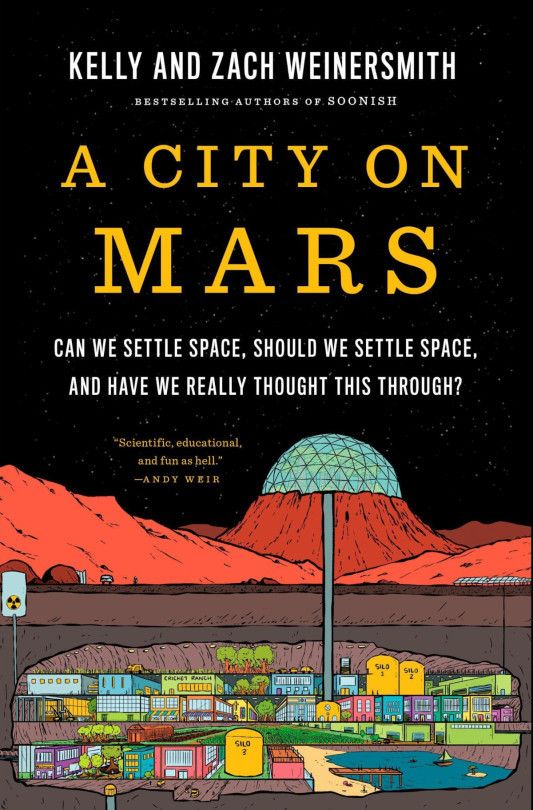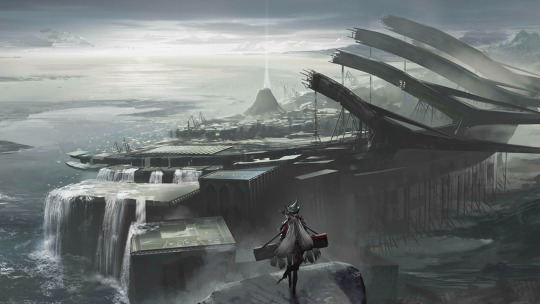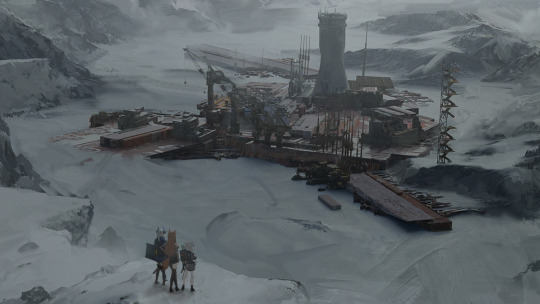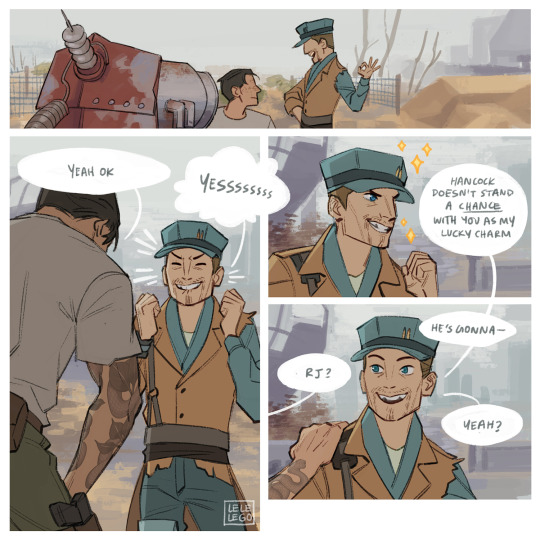#Settlements.
Text
Hey so remember how grocery prices suddenly jackknifed during lockdown and never went back down?
Well turns out the companies would have done that shit either way and had been steadily price-fixing for the last decade!
Washington State Attorney General Bob Ferguson just announced more than $40 million in court-ordained Fuck You money from massive swaths of food production companies are to be paid out to households earning at or below 175% of the federal poverty level ($25.5k for 1 person, $34.5k for 2 people households) before Dec 31st of this year. Happy Holidays.
youtube
"The bottom line here is that my legal team took on two large corporate price-fixing conspiracies that increased the cost for groceries for Washington families. We've prevailed, and as a result, we are sending checks to over 400,000 Washington households."
Cannot stress enough the extent of the conspiracies he's talking about here. 15 out of the total 19 chicken producers got nailed in this lawsuit. Not the total number of conspirators, mind, just the ones who left enough evidence for the AG to kick their ass in so expedient a manner. Make no mistake, all 19 were in on it. The court case against the rest of them has been delayed until October of next year, though. None of them are making it out unscathed.
Tuna didn't escape antitrust horseshit either, because the CEOs of Starkist, Chicken of the Sea, and Bumblebee Tuna had a fucking group chat where they complained that the price of tuna was "too low" and they agreed to artificially inflate the price.
“What’s so maddening about the conduct of these companies is the reason that they engaged in this price-fixing conspiracy was greed. They wanted to make money."

So anyway the AG who nailed their asses to the wall and continues to do so is running for governor. If you live in Washington, could be worth your vote when primary season rolls around.
#news#uspol#monopolies#so hey i guess the world isn't complete bullshit even if the settlement money really shoulda been higher#cause deep down you know they only settled because they knew the money was barely going to be a slap on the wrist#Youtube
21K notes
·
View notes
Text
الجدار العازل وموقف محكمة العدل الدولية (منذ 2002 إلى يومنا هذا)
الجدار العازل وموقف محكمة العدل الدولية (منذ 2002 إلى يومنا هذا)
الجدار العازل وموقف محكمة العدل الدولية (منذ 2002 إلى يومنا هذا)
الكاتب : أوهيبة خديجة . فغرور دحو
الملخص:
إن من أهم خروقات إسرائيل للقانون الدولي بناء الجدار العازل، في الأراضي الفلسطينية المحتلة، بما في ذلك القدس الشرقية وما حولها؛ بحجة أن الجدار ذو طبيعة مؤقتة، وأنه وضع استجابة لمقتضيات أمنية بحتة، و الحجة نفسها تذرعت بها من…

View On WordPress
#construction#international law.#Jerusalem.#Palestine#Security#settlements.#the court of justice#the Israeli entity#the separation barrier#the wall#فلسطين.#محكمة العدل#القانون الدولي#القدس#الكيان الإسرائيلي#المستوطنات.#الأمن#البناء#الجدار#العازل
0 notes
Text
الجدار العازل وموقف محكمة العدل الدولية (منذ 2002 إلى يومنا هذا)
الجدار العازل وموقف محكمة العدل الدولية (منذ 2002 إلى يومنا هذا)
الجدار العازل وموقف محكمة العدل الدولية (منذ 2002 إلى يومنا هذا)
الكاتب : أوهيبة خديجة . فغرور دحو
الملخص:
إن من أهم خروقات إسرائيل للقانون الدولي بناء الجدار العازل، في الأراضي الفلسطينية المحتلة، بما في ذلك القدس الشرقية وما حولها؛ بحجة أن الجدار ذو طبيعة مؤقتة، وأنه وضع استجابة لمقتضيات أمنية بحتة، و الحجة نفسها تذرعت بها من…

View On WordPress
#construction#international law.#Jerusalem.#Palestine#Security#settlements.#the court of justice#the Israeli entity#the separation barrier#the wall#فلسطين.#محكمة العدل#القانون الدولي#القدس#الكيان الإسرائيلي#المستوطنات.#الأمن#البناء#الجدار#العازل
0 notes
Text
[ID: a link preview of a stock image coffee table with a laptop with the facebook logo on the screen with text on top that says 'anyone who used facebook in the last 16 years can now get settlement money. here's how." end ID]
-USA Residents Only-
Time Sensitive- Apply before August 25th, 2023 (8/25/23)!
Filing a claim takes less than ten minutes, and can be done HERE
Excerpt from article:
Anyone in the U.S. who used Facebook in the last 16 years can now collect a piece of a $725 million settlement by parent company Meta tied to privacy violations — as long as they fill out a claim on a website set up to pay out money to the social network's users.
The settlement stems from multiple lawsuits that were brought against Facebook by users who claimed that the company improperly shared their data with third-party sources such as advertisers and data brokers. The litigation began after Facebook was embroiled in a privacy scandal in 2018 with Cambridge Analytica, which scraped user data from the site as part of an effort to profile voters.
Meta denied any liability or wrongdoing under the settlement, according to the recently created class-action website. However, the agreement means that U.S. residents who used Facebook between May 24, 2007, and December 22, 2022, can file a monetary claim as long as they do so before August 25, 2023.
Please reblog to signal boost this! As many people as possible should know about this to make their claim, if you don't do anything you don't get anything. It takes less than ten minutes to file and pick your payment option including pay/pal and ven/mo .
-USA Residents Only-
This ended August 25th, 2023!
#facebook#free money#signal boost#facebook lawsuit#facebook settlement#time sensitive#bold text#large text#PLEASE REBLOG
29K notes
·
View notes
Text
ANYONE THAT CAN, SHOW UP AND DISRUPT THE EVENTS



#free palestine#palestine#gaza#free gaza#west bank#west bank settlements#illegal occupation#illegal settlements#israel#jerusalem#zionism
4K notes
·
View notes
Text
I desperately hope they keep the detail of sally selling Gabe’s statue because there is something so hilarious about that woman opening her front door, seeing that her ex-husband has been Medusa-ed, and going “you know I think he’d look nice at an art gallery”
It’d also be one hell of a divorce settlement and that’s what she deserves
#not really a divorce settlement but shhh#sally can do whatever she wants I’ll support her#I understand Poseidon I really do#she’s worth defying the king of the gods#pjo#percy jackson#percy jackson and the olympians
3K notes
·
View notes
Text
Injury attorney san Antonio, USA 2023
An injury attorney in San Antonio, USA is a legal professional who specializes in handling cases related to personal injury. Personal injury cases can involve a variety of accidents or incidents, such as car accidents, workplace accidents, slip and fall accidents, medical malpractice, and more.
The primary role of an injury attorney is to represent their clients in court and negotiate on their…

View On WordPress
#Accident Lawyer#car accident#compensation#Injury attorney#Injury attorney san Antonio USA 2023#insurance claims#Law Firm#legal advice#Medical Malpractice#negligence#Personal Injury Lawyer#Product Liability#San Antonio#Settlements.#Trial Lawyer#USA#Workers Compensation
0 notes
Text


Oh jfc, how evil can you get??
#free palestine#palestine#free gaza#gaza#israel#current events#save the children#us politics#gaza genocide#israel is committing genocide#save gaza children#israeli settlements#israeli settlers#settler violence#israel is a genocidal state#genocide in gaza#palestine genocide#israel is committing war crimes#israel is a war criminal#israel is an apartheid state#israel is a terrorist state
2K notes
·
View notes
Text

#we stand with palestine#palestine#save palestine#gaza genocide#gaza strip#free gaza#gazaunderattack#gaza#rafah under attack#save rafah#rafah#hamas#islamic jihad#call for ceasefire#call for jihad#israel is a terrorist state#stop israel#israeli settlements#boycott israel#israel is committing genocide#israeli war crimes#israeli terrorism#muslim#muslim ummah#muslim reminder#one ummah#save the children#allah#islamicreminders#islam
940 notes
·
View notes
Text
Kelly and Zach Weinersmith’s “A City On Mars”

In A City On Mars, biologist Kelly Weinersmith and cartoonist Zach Weinersmith set out to investigate the governance challenges of the impending space settlements they were told were just over the horizon. Instead, they discovered that humans aren't going to be settling space for a very long time, and so they wrote a book about that instead:
https://www.acityonmars.com/
The Weinersmiths make the (convincing) case that ever aspect of space settlement is vastly beyond our current or reasonably foreseeable technical capability. What's more, every argument in favor of pursuing space settlement is errant nonsense. And finally: all the energy we are putting into space settlement actually holds back real space science, which offers numerous benefits to our species and planet (and is just darned cool).
Every place we might settle in space – giant rotating rings, the Moon, Mars – is vastly more hostile than Earth. Not just more hostile than Earth as it stands today – the most degraded, climate-wracked, nuke-blasted Earth you can imagine is a paradise of habitability compared to anything else. Mars is covered in poison and the sky disappears under planet-sized storms that go on and on. The Moon is covered in black-lung-causing, razor-sharp, electrostatically charged dust. Everything is radioactive. There's virtually no water. There are temperature swings of hundreds of degrees every couple of hours or weeks. You're completely out of range of resupply, emergency help, or, you know, air.
There's Helium 3 on the Moon, but not much of it, and there is no universe in which is it cheaper to mine for Helium 3 on the Moon than it is to mine for it on Earth. That's generally true of anything we might bring back from space, up to and including continent-sized chunks of asteroid platinum.
Going to space doesn't end war. The countries that have gone to space are among the most militarily belligerent in human history. The people who've been to space have come back perfectly prepared to wage war.
Going to space won't save us from the climate emergency. The unimaginably vast trove of material and the energy and advanced technology needed to lift it off Earth and get it to Mars is orders of magnitude more material and energy than we would need to resolve the actual climate emergency here.
We aren't anywhere near being a "multiplanetary species." The number of humans you need in a colony to establish a new population is hard to estimate, but it's very large. Larger than we can foreseeably establish on the Moon, on Mars, or on a space-station. But even if we could establish such a colony, there's little evidence that it could sustain itself – not only are we a very, very long way off from such a population being able to satisfy its material needs off-planet, but we have little reason to believe that children could gestate, be born, and grow to adulthood off-planet.
To top it all off, there's space law – the inciting subject matter for this excellent book. There's a lot of space law, and while there are some areas of ambiguity, the claims of would-be space entrepreneurs about how their plans are permissible under the settled parts of space law don't hold up. But those claims are robust compared to claims that space law will simply sublimate into its constituent molecules when exposed to the reality of space travel, space settlement, and (most importantly) space extraction.
Space law doesn't exist in a vacuum (rimshot). It is parallel to – and shares history with – laws regarding Antarctica, the ocean's surface, and the ocean's floor. These laws relate to territories that are both vastly easier to access and far more densely populated by valuable natural resources. The fact that they remain operative in the face of economic imperatives demands that space settlement advocates offer a more convincing account than "money talks, bullshit walks, space law is toast the minute we land on a $14 quadrillion platinum asteroid."
The Weinersmiths have such an account in defense of space law: namely, that space law, and its terrestrial analogs, constitute a durable means of resolving conflicts that would otherwise give rise to outcomes that are far worse for science, entrepreneurship, human thriving or nation-building than the impediments these laws represent.
What's more, space law is enforceable. Not only would any space settlement be terribly, urgently dependent on support from Earth for the long-foreseeable future, but every asteroid miner, Lunar He3 exporter and Martian potato-farmer hoping to monetize their products would have an enforcement nexus with a terrestrial nation and thus the courts of that nation.
But the Weinersmiths aren't anti-space. They aren't even anti-space-settlement. Rather, they argue that the path to space-based scientific breakthroughs, exploration of our solar system, and a deeper understanding of our moral standing in a vast universe cannot start with space settlements.
Landing people on the Moon or Mars any time soon is a stunt – a very, very expensive stunt. These boondoggles aren't just terribly risky (though they are – people who attempt space settlement are very likely to die horribly and after not very long), they come with price-tags that would pay for meaningful space science. For the price of a crewed return trip to Mars, you could put multiple robots onto every significant object in our solar system, and pilot an appreciable fleet of these robot explorers back to Earth with samples.
For the cost of a tiny, fraught, lethal Moon-base, we could create hundreds of experiments in creating efficient, long-term, closed biospheres for human life.
That's the crux of the Weinersmiths' argument: if you want to establish space settlements, you need to do a bunch of other stuff first, like figure out life-support, learn more about our celestial neighbors, and vastly improve our robotics. If you want to create stable space-settlements, you'll need to create robust governance systems – space law that you can count on, rather than space law that you plan on shoving out the airlock. If you want humans to reproduce in space – a necessary precondition for a space settlement that lasts more than a single human lifespan – then we need to do things like breed multiple generations of rodents and other animals, on space stations.
Space is amazing. Space science is amazing. Crewed scientific space missions are amazing. But space isn't amazing because it offers a "Plan B" for an Earth that is imperiled by humanity's recklessness. Space isn't amazing because it offers unparalleled material wealth, or unlimited energy, or a chance to live without laws or governance. It's not amazing because it will end war by mixing the sensawunda of the "Pale Blue Dot" with the lebensraum of an infinite universe.
A science-driven approach to space offers many dividends for our species and planet. If we can figure out how to extract resources as dispersed as Lunar He3 or asteroid ice, we'll have solved problems like extracting tons of gold from the ocean or conflict minerals from landfill sites, these being several orders of magnitude more resource-dense than space. If we can figure out how to create self-sustaining terraria for large human populations in the radiation-, heat- and cold-blasted environs of space, we will have learned vital things about our own planet's ecosystems. If we can build the robots that are necessary for supporting a space society, we will have learned how to build robots that take up the most dangerous and unpleasant tasks that human workers perform on Earth today.
In other words, it's not just that we should solve Earth's problems before attempting space settlement – it's that we can't settle space until we figure out the solutions to Earth's problems. Earth's problems are far simpler than the problems of space settlement.
As I read the Weinersmiths' critique of space settlement, I kept thinking of the pointless AI debates I keep getting dragged into. Arguments for space settlement that turn on existential risks (like humanity being wiped out by comets, sunspots, nuclear armageddon or climate collapse) sound an awful lot like the arguments about "AI safety" – the "risk" that the plausible sentence generator is on the verge of becoming conscious and turning us all into paperclips.
Both arguments are part of a sales-pitch for investment in commercial ventures that have no plausible commercial case, but whose backers are hoping to get rich anyway, and are (often) sincerely besotted with their own fantasies:
https://locusmag.com/2023/12/commentary-cory-doctorow-what-kind-of-bubble-is-ai/
Both AI and space settlement pass over the real risks, such as the climate consequences of their deployment, or the labor conditions associated with their production. After all, when you're heading off existential risk, you don't stop to worry about some carbon emissions or wage theft.
And critically, both ignore the useful (but resolutely noncommercial) ways that AI or space science can benefit our species. AI radiology analysis might be useful as an adjunct to human radiological analysis, but that is more expensive, not less. Space science might help us learn to use our materials more efficiently on Earth, and that will come long before anyone makes rendezvous with a $14 quadrillion platinum asteroid.
There are beneficial uses for LLMs. When the Human Rights Data Analysis Group uses an LLM to help the Innocence Project New Orleans extract and categorize officer information from wrongful conviction records, they are doing something valuable and important:
https://hrdag.org/tech-notes/large-language-models-IPNO.html
It's socially important work, a form of automation that is an unalloyed good, but you won't hear about it from LLM advocates. No one is gonna get rich on improving the efficiency of overturning wrongful convictions with natural language processing. You can't inflate a stock bubble with the Innocence Project.
By the same token, learning about improving gestational health by breeding multigenerational mouse families in geosynchronous orbit is no way to get a billionaire tech baron to commit $250 billion to space science. But that's not an argument against emphasizing real science that really benefits our whole species. It's an argument for taking away capital allocation authority from tech billionaires.
I'm a science fiction writer. I love stories about space. But I can distinguish fantasy from reality and thought experiments from suggestions. Kim Stanley Robinson's 2015 novel Aurora – about failed space settlement – is every bit as fascinating and inspirational as "golden age" sf:
https://memex.craphound.com/2015/11/02/kim-stanley-robinsons-aurora-space-is-bigger-than-you-think/
But still, it inspired howls of outrage from would-be space colonists. So much so that Stan wrote a brilliant essay explaining what we were all missing about space settlement, which I published:
https://boingboing.net/2015/11/16/our-generation-ships-will-sink.html
With City on Mars, the Weinersmiths aren't making the case for giving up on space, nor are they trying to strip space of its romance and excitement. They're trying to get us to focus on the beneficial, exciting, serious space science we can do right now, not just because it's attainable and useful – but because it is a necessary precondition for any actual space settlement in the distant future.

If you'd like an essay-formatted version of this post to read or share, here's a link to it on pluralistic.net, my surveillance-free, ad-free, tracker-free blog:
https://pluralistic.net/2024/01/09/astrobezzle/#send-robots-instead
#pluralistic#books#reviews#space#bezzles#mars#spacex#robots#science#space science#space travel#space settlement#space colonization
1K notes
·
View notes
Text
love this genre of arknights image




they love making us (and the characters) look at the world of terra.
#arknights#i tried using alt text i wonder if it worked#im a sucker for worldbuilding and arknights has continuously fed me full course meals#far and wide shots of cities and settlements like this are nice to see#you get a sense of scale and can see what the place looks like
1K notes
·
View notes
Note
How about Floyd, who came back as promised, hugging little Branch who just saw Grandma Rosiepuff get taken/eaten by the Bergen Chef?
Or how about Floyd, who came back as promised only to find the Troll Tree devoid of life and Rosiepuff's pod empty, going grey as he mourns baby Branch whom he thinks got eaten?
Hey so! Totally fun (and not hurtful at all) fact-!
For Trolls Band Together, the story the writers wanted to go with (according to the Artbook and novelization), implies that Brozone's disbandment happens before Bergen Town is even a thing, which has such severe implications to me.


so.
tfw you return to your home to find that
actually, the forest that sheltered you is eradicated, replaced with a giant town whose occupants' sole form of joy consists of devouring you.
the tree that served as your home is the only thing left of that forest, and it is decayed, withered, and desiccated... displayed in the middle of the town in a cage.
your pod, your home, is empty. every home around it is empty too. there are no trolls in sight.
as far as you know, everyone that used to be here is gone. or dead. most likely dead.
you will never see them ever again.
you were just a teenager.

#trolls#floyd#meadow-hearthfire#sandflakedrew#asks#u can pry this from my cold dead fingers#this is canon .. to Me specifically#because i'm a sucker for something that makes a thing Both Better And Also Sadder#in addition#the way i've been reconciling the general timeline is like so:#1. There was the Inciting Bergen-Ate-A-Troll Incident however many years ago - which fractured the pop trolls into smaller communities#2. The Bergens had indeed been eating pop trolls for generations complete with Trollstice#HOWEVER.#That had been amongst a moving Bergen settlement and those various pop troll populations#(<those groups have been eaten to extinction)#3. Therefore - Bergens were things our specific group of trolls were aware of at large - but one they had not yet experienced#4. It culminates with Bergen Town being the recent Settlement and the luck of Peppy's group running out.
427 notes
·
View notes
Text
preston garvey is such an og bro, and yes for all the reasons you're thinking of but also because like, he literally led a whole group of people from Quincy to Jamaica Plain!! AND THEN ACROSS THE CHARLES RIVER TO LEXINGTON AND THEEN EVEN FURTHER UP NORTH TO CONCORD.
he was watching out for this group of people who had just been run out of their homes. he stayed with these refugees throughout every disastrous place they thought they'd be safe, every death, and just all that grieving; all while struggling with his own sense of purpose ("Everything I believed in had turned out to be a lie.") and feelings of being a failure, that led him to thinking he'd be better off dead :( plus, these people from Quincy were strangers to him at first. he didn't have to do all that, yet he took it upon himself to do so. because he's just built that way. he's too good for the damn wasteland. </3
and like even after all of that, he doesn't hang the Minuteman hat up. he keeps on going, pushing the boulder up the hill in hope of making the Commonwealth a better and safer place.
#deacon reference if you squint#also shoutout to sturges my bbg#fallout#fallout 4#fo4#prestonposting#fallout preston#preston garvey#fallout minutemen#fo4 minutemen#minutemen#fo4 preston#another settlement needs our help!#ill mark it on your map :3#fo4 companions
506 notes
·
View notes
Text


happy space holidays from your metroid friends. featuring a glimpse at a past federation space christmas party

#i dont think they would celebrate space christmas at the chozo settlement but they would do it just for samus. her special treat.#adam gets told to dress up as santa to increase morale#metroid#samus aran#adam malkovich#metroid fusion#loneart
995 notes
·
View notes
Text

#chief hatuey#hispaniola#spaniards#christianity#heaven#hell#colonization#resistance#indigenous peoples#colonialism#imperial expansion#conquest#settlement#exploitation#indigenous displacement#cultural assimilation
416 notes
·
View notes
Text






distractions
#fo4#fallout 4#fallout#robert joseph maccready#sole survivor#old comic from when i was working and also playing fo4 like 30-40 hours a week somehow LMFAOOOOO#the settlement building is so good :(#doodly thingy#fallout tag#oc: adrian#YES I HAVE AN OC NAMED ADRIAN AND ALSO AN OC NAMED ADRIÀ#i dont want to hear it. GOOD DAY
3K notes
·
View notes